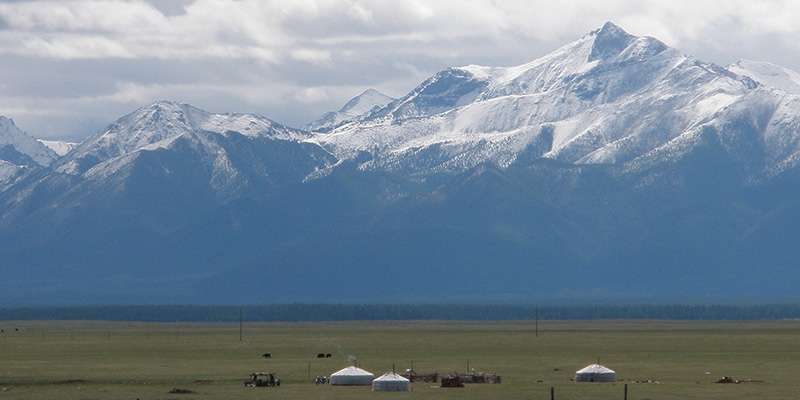Studying human generosity around the globe

Rutgers anthropologist Lee Cronk has been working in remote stretches of Arizona and New Mexico, studying the ways in which ranchers are working together to manage the risks of their trade.
One of Cronk's graduate students, Thomas Conte, is even further off the grid. He's traveling with sheep herders in northern Mongolia, observing how families cooperate to cope with calamity.
Cathryn Townsend, a post-doctoral associate, is in Africa, living and working with farmers devastated by floods and famine yet who retain a strong communal tradition of sharing resources.
The three Rutgers anthropologists are among a group of scholars investigating some of the fundamental questions of human nature: Why, how, and under what conditions do people cooperate and share with each other?
"In a very broad sense we are trying to create a body of empirical work that helps explain human generosity," says Cronk, a professor in the Department of Anthropology in the School of Arts and Sciences. "Why are people generous with one another? Why aren't they just selfish?"
Cronk serves as co-director of the Human Generosity Project, a research initiative run by Rutgers and Arizona State University (ASU) investigating examples of cooperation and risk pooling in eight communities across the globe.
The potential benefits of the research to humankind are enormous.
"Our research is highlighting cooperation as an ancient practice, essential to the survival of our species," says Townsend, who is working with the Ik people, subsistence farmers in the mountains of Uganda. "In the long term, our work could help bring together divided communities and encourage us all to protect the natural resources that we depend upon for our survival."
Conte will spend most of this academic year in Mongolia near the Siberian border. He'll live in a felt tent and travel over mountain ranges on horseback. He'll observe the ways that the semi-nomadic herders work together to prepare for devastating winter storms, or zud, by cutting and storing hay and building shelters for the animals.
"The fundamental question I'm trying to look at is whether disasters or risks bring people together or drive them apart," Conte says.
The project, funded largely through a grant by the John Templeton Foundation, and co-directed by ASU scholar Athena Aktipis, developed from Cronk's longtime interest in the Maasai people of East Africa, who use a system of sharing called osotua in which individuals ask their neighbors for help when in need and give to others when asked.
"Osotua is really about: "If you're in trouble, I will help you out," Cronk says. "We found it a rich area for research."
Indeed, Cronk's most recent work shows that even American ranchers—celebrated in popular culture for their rugged individualism—have created a network of cooperation in which they help each other with tasks such as branding or shipping, as well as providing support in the event of an injury.
"The ranchers are very individualistic, but they realize that people get in trouble and need help," Cronk says.
Cronk, more accustomed to doing research in African villages, was initially taken aback by the sparsely populated ranchlands of the Southwest, where he had to drive hundreds of miles to get interviews with his subjects.
Still, he said, such challenges come with the job.
"Anthropologists study people where they are," he says. "And if that happens to be in the American Southwest, so be it. We study everybody."
Provided by Rutgers University

















